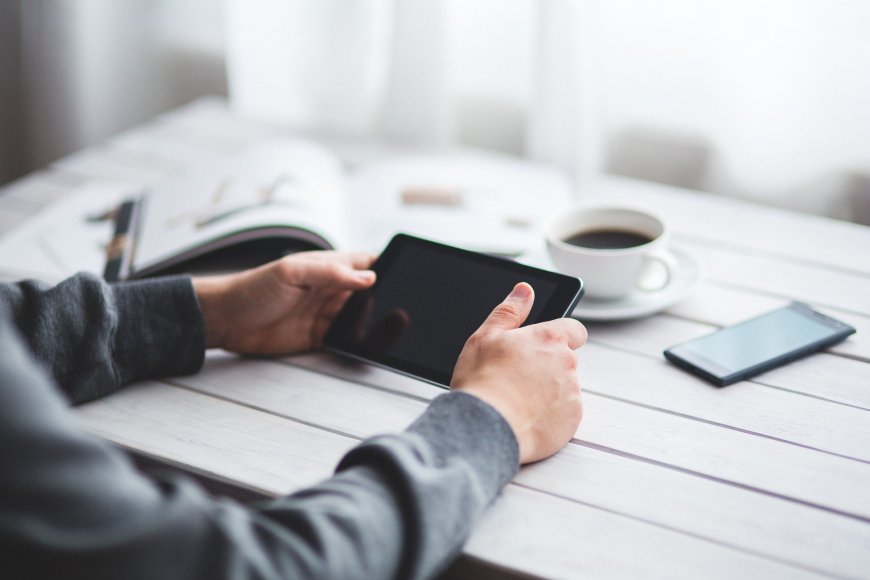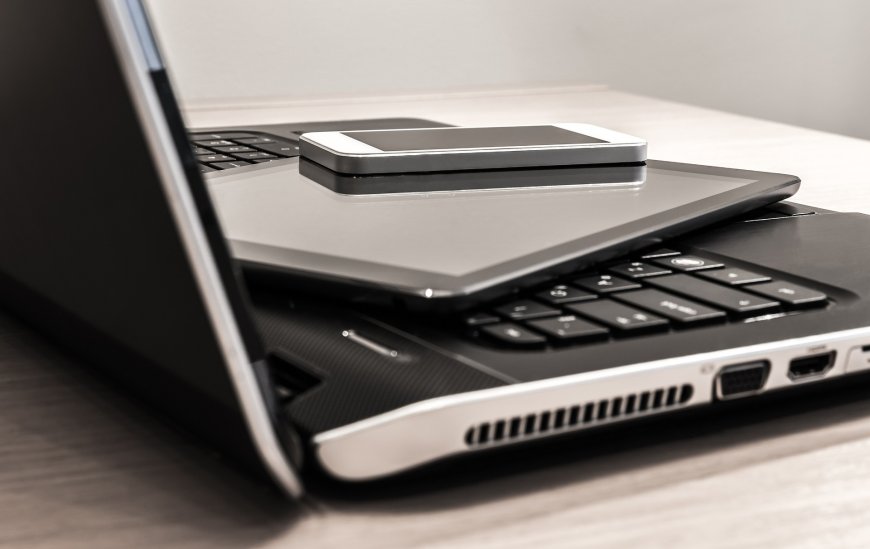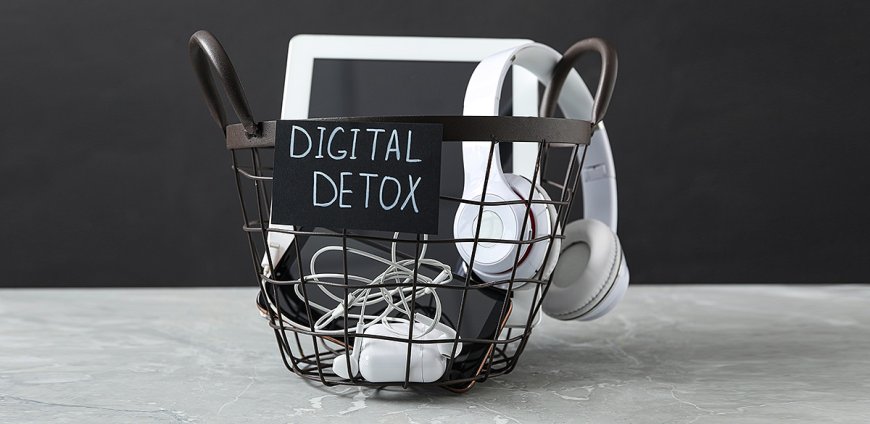What Are Digital Devices?
Digital devices are electronic tools that process, store, and transmit data. They include:
-
Smartphones: Multifunctional devices that combine cellular communication, computing capabilities, and internet connectivity.
-
Tablets: Portable computers with touchscreens, used for browsing, reading, and entertainment.
-
Laptops and Computers: Essential for work, education, and gaming, providing extensive computing power.
-
Wearables: Smartwatches and fitness trackers that monitor health and fitness data.
-
Gaming Consoles: Dedicated devices for playing video games.
-
Smart Home Devices: Gadgets like smart speakers and home automation systems that make life more convenient.
The Impact of Digital Devices on People

Physical Health
-
Eye Strain: Prolonged screen time leads to digital eye strain, causing discomfort and vision problems.
-
Sleep Disruption: Blue light emitted by screens interferes with the sleep cycle, reducing sleep quality.
-
Sedentary Lifestyle: Extended use of digital devices encourages inactivity, contributing to obesity and related health issues.
Mental Health
-
Anxiety and Stress: Constant notifications and the pressure to stay connected can heighten stress levels.
-
Reduced Attention Span: Overuse of digital devices can negatively affect concentration and productivity.
-
Social Isolation: Excessive virtual interaction may reduce face-to-face social interactions, impacting emotional well-being.
What is Digital Detox?
Digital Detox refers to the intentional reduction or elimination of digital device usage for a specific period to relieve stress and focus on real-life interactions. Its importance lies in:
-
Mental Clarity: Reducing screen time helps clear mental clutter and improves focus.
-
Improved Relationships: Engaging in face-to-face conversations strengthens personal connections.
-
Better Sleep: Minimizing device usage, especially before bedtime, enhances sleep quality.
-
Enhanced Productivity: Fewer digital distractions lead to more effective work and study sessions.
When Do You Need a Digital Detox?
Consider a Digital Detox if you experience:
-
Constant Fatigue: Feeling tired due to lack of quality sleep.
-
Decreased Productivity: Struggling to concentrate on tasks.
-
High Stress Levels: Feeling overwhelmed by digital notifications and social media.
-
Social Withdrawal: Preferring online interactions over in-person meetings.
Benefits of Digital Detox on Mental Health

Psychological Well-being
-
Reduced Stress: A break from digital overload lowers stress hormones.
-
Increased Happiness: Engaging in offline activities can boost mood and happiness.
-
Better Focus: Improved attention span and cognitive function.
Emotional Health
-
Enhanced Relationships: Spending quality time with loved ones strengthens emotional bonds.
-
Self-awareness: Reflecting without digital distractions promotes self-discovery and mindfulness.
Methods of Digital Detox
Gradual Reduction
-
Limit Screen Time: Set specific hours for device usage.
-
Turn Off Notifications: Reduce interruptions by disabling non-essential notifications.
-
Designate Device-Free Zones: Keep devices out of bedrooms and dining areas.
Complete Break
-
Digital Sabbatical: Take a full day or weekend off from all digital devices.
-
Unplugged Activities: Engage in hobbies, exercise, and nature walks.
Structured Programs
-
Detox Retreats: Participate in organized retreats that offer guided digital detox experiences.
-
Counseling: Seek professional help to develop healthy digital habits.
Choosing the Right Digital Detox for You
-
Assess Your Needs: Identify the areas of life most affected by digital device usage.
-
Set Realistic Goals: Define achievable and specific goals for reducing screen time.
-
Track Progress: Use apps or journals to monitor your progress and adjust your detox plan accordingly.
Analysis of Digital Device Usage in U.S. Homes (2024)
Below is a table showing the number of people using digital devices in U.S. homes by age group, based on data from official sources.
|
Age Group
|
Number of Users (in millions)
|
|
0-18 years
|
40
|
|
19-35 years
|
80
|
|
36-50 years
|
60
|
|
51-65 years
|
45
|
|
66+ years
|
25
|
|
Total
|
250
|
FAQs
What is a Digital Detox?
A Digital Detox is the intentional reduction or elimination of digital device used to alleviate stress and improve overall well-being.
How Long Should a Digital Detox Last?
The duration varies; it can range from a few hours daily to several days or weeks, depending on individual needs and goals.
Can Digital Detox Improve Sleep?
Yes, reducing screen time, especially before bedtime, can significantly enhance sleep quality by minimizing blue light exposure.
Is Digital Detox Suitable for Everyone?
Most people can benefit from a Digital Detox, but the approach and duration should be tailored to individual lifestyles and requirements.
How Do I Start a Digital Detox?
Begin by setting specific goals, creating device-free zones, and gradually reducing screen time. Consider professional guidance if needed.
Are There Any Risks Associated with Digital Detox?
While generally safe, some individuals may initially experience anxiety or discomfort due to reduced connectivity. Gradual implementation can mitigate these effects.
A Digital Detox is a powerful tool for reclaiming mental and emotional health in a tech-centric world. By understanding the impacts of digital devices and taking intentional breaks, we can foster a healthier relationship with technology and enhance our overall well-being.
